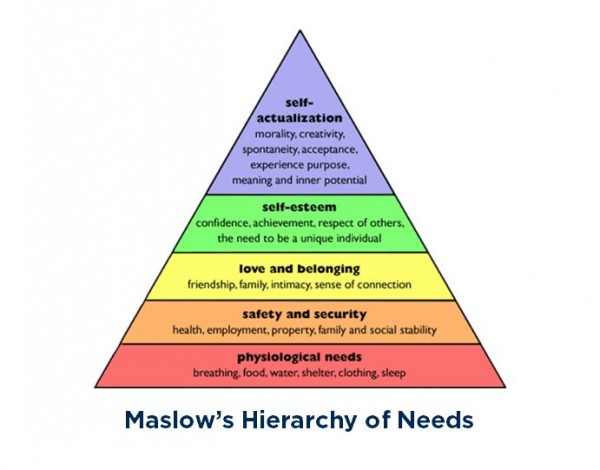New parents often find that self-care takes a back seat when they are focused on caring for their young children. This is understandable because young children depend on their parents to meet all their needs day in and day out. As a result, parents instinctively prioritize their children’s needs first, leaving their own needs unattended. While this approach may seem natural, it can significantly affect the parent’s ability to engage in meaningful interactions with their children.
So, what can parents do? A key aspect of maintaining our well-being as humans involves practicing self-care and prioritizing our own needs. According to Maslow’s Hierarchy of Needs, there is a set of basic needs that every person must fulfill to reach their fullest potential. Maslow argued that when these needs are not met, it can lead to issues like illness, posttraumatic stress, depression, and anxiety. Let’s explore how self-care can be integrated at each level of Maslow’s hierarchy during a parent’s day, to help them become a better parent.

Physiological Needs: Enhancing Self-Care
Your basic needs—breathing, food, water, shelter, and clothing—are fundamental to feeling good and enjoying life. Optimizing these areas can boost your focus and energy.
- Just Breathe: Start your day with five minutes of mindful breathing or meditation. Use free apps to guide you.
- You Are What You Eat: Plan meals and snacks to ensure you get the nutrients you need. Consider grocery delivery to save time and stay on track.
- Prepare Your Clothes: Lay out clothes the night before to streamline your morning and free up time for self-care.
- Everyone Needs Good Sleep: Establish a calming bedtime routine—limit screen time, take a hot bath, and use lavender-scented products to promote restful sleep.
Safety and Security: Strengthening Your Stability
Addressing your health, finances, and home life is crucial for being a present and engaged parent.
- Engage in Preventative Health: Prioritize your health by scheduling annual check-ups and addressing concerns promptly. Book your next appointment while at the doctor.
- Financial Planning: Secure a stable income to meet your family’s needs. Consider a second income source that supports self-care, like fitness instructing, a home-baking business, or pet walking.
Love and Belonging: Fostering Connection
Healthy relationships are key for you and your child’s well-being.
- Nurture Your Relationships: Share activities that allow for adult interaction while kids play. Plan date nights, social gatherings, or meetups that rejuvenate you.
- Attend Social Events: Expand your social circle by attending school and community events. Dress up, meet new people, and enjoy quality time with your children.
Self-Esteem: Boosting Through Self-Care
Self-esteem plays a crucial role in your psychological well-being and personal development.
- Set and Achieve Goals: Start small with realistic fitness, work, or parenting goals. Track progress in a journal to boost confidence and reinforce accomplishment.
- Practice Positive Self-Talk: Counter self-doubt with affirmations. Focus on your strengths and achievements.
- Daily Gratitude Reflection: Reflect on what you're grateful for, including your own qualities, to shift focus from shortcomings to strengths.
- Forgive Yourself: Accept mistakes as growth opportunities. Treat yourself with the kindness you would offer a friend.
Self-Actualization: Becoming Your Best Self
Reaching self-actualization through self-care involves nurturing your full potential and becoming the best version of yourself.
- Lifelong Learning: Engage in activities that expand your knowledge and skills. Take courses, read, or explore new hobbies to continuously challenge yourself.
- Allow for Downtime: Create a space for relaxation and reflection, which often sparks creative ideas and insights.
- Give Back: Contribute to your community or support causes you care about. Helping others can give your life greater meaning and purpose.
- Avoid Burnout: Take breaks and rest when needed. Sustaining long-term growth requires managing stress and avoiding overexertion.
Huitt, W. (2007). Maslow’s hierarchy of needs. Educational Psychology Interactive. Valdosta, GA: Valdosta State University. Retrieved from http://www.edpsycinteractive.org/topics/regsys/maslow.html
Martin, D., & Joomis, K. (2007). Building teachers: A constructivist approach to introducing education. Belmont, CA: Thomson/Wadsworth.
Maslow’s Hierarchy. (n.d.). Retrieved from http://changingminds.org/explanations/needs/maslow.htm



